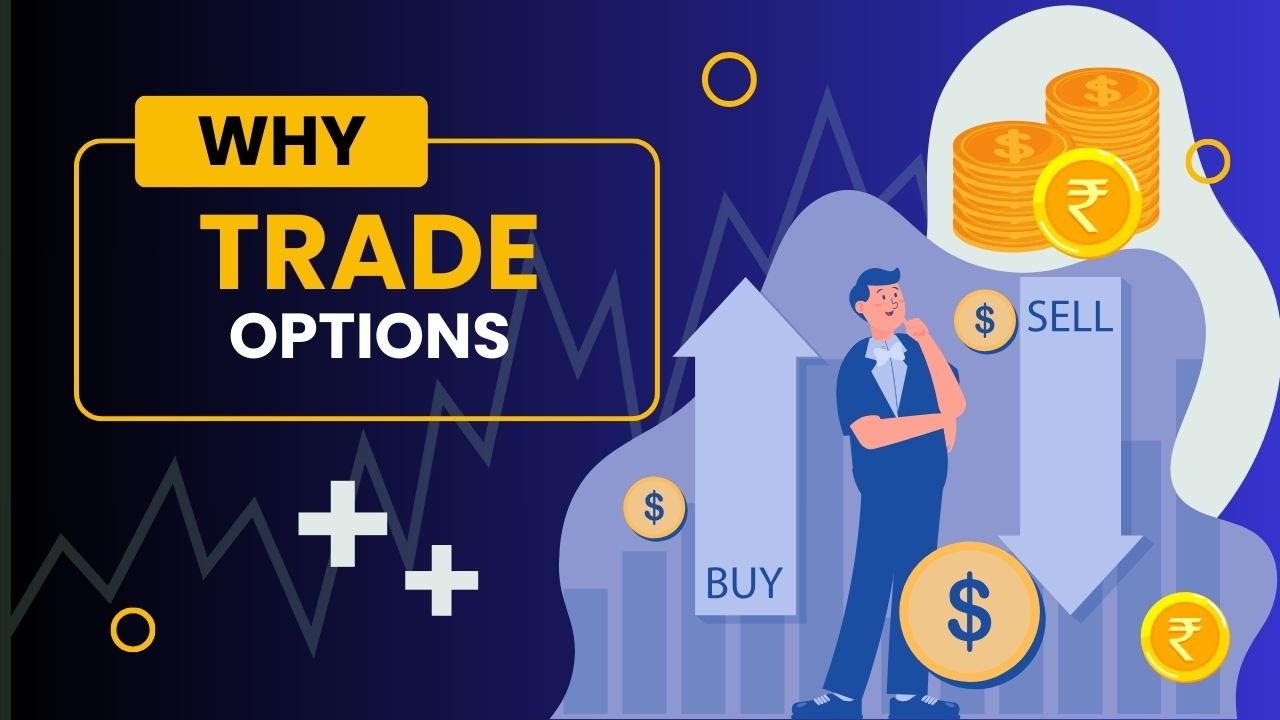

Why Trade Options?
Trading options offers several unique benefits and opportunities compared to trading traditional stocks or other assets. Here are some compelling reasons why traders and investors might choose to trade options:
1. Leverage
Options allow you to control a larger position in an underlying asset with a relatively small investment. This leverage can magnify potential gains. For example, buying a call option gives you exposure to the upside of a stock without needing to buy the stock outright.
2. Flexibility
Options offer a wide range of strategies for various market conditions. Whether you expect a stock to rise, fall, or remain stable, there are options strategies designed to profit in different scenarios. This flexibility allows you to tailor your approach to your market outlook and risk tolerance.
3. Hedging
Options can be used to hedge or protect existing investments. For instance, if you own a stock and are worried about a potential decline, buying a put option can provide downside protection by giving you the right to sell the stock at a predetermined price.
4. Income Generation
Selling options can generate additional income. For example, if you sell covered calls on stocks you own, you can earn premiums from the sale of the call options. This can enhance your returns, especially in a flat or moderately bullish market.
5. Defined Risk
Many options strategies offer defined risk, meaning you know your maximum loss upfront. For instance, when you buy a call or put option, the most you can lose is the premium you paid for the option. This defined risk can be attractive compared to the potentially unlimited losses in other types of trades.
6. Strategic Opportunities
Options enable you to implement various advanced strategies, such as:
Spreads: Combining different options to limit risk and manage costs.
Straddles and Strangles: Betting on significant price movement in either direction.
Butterflies and Condors: Profiting from limited price movements.
7. Cost Efficiency
Buying options can be less expensive than buying the underlying asset outright. For instance, a call option might cost a fraction of the price of the underlying stock, allowing you to gain exposure to price movements with a lower upfront investment.
8. Speculation
Options are often used for speculative purposes. Traders might use options to bet on short-term movements or trends without needing to commit to the underlying asset. This can be a way to profit from anticipated market movements with limited capital.
9. Market Timing
Options allow traders to make bets on the timing of price movements. With various expiration dates available, you can choose options that align with your market outlook and investment horizon.
10. Arbitrage Opportunities
Options can be used for arbitrage, which involves exploiting price discrepancies between the options and the underlying asset or between different options markets. This can be a way to lock in risk-free profits under certain conditions.
11. Access to Different Markets
Options are available for a wide range of underlying assets, including stocks, indices, commodities, and currencies. This provides traders with opportunities to diversify their strategies across different markets.
12. Customization
Options contracts can be tailored to specific needs. For example, you can choose different strike prices and expiration dates to match your market view or investment objectives.
While options trading offers numerous advantages, it's important to recognize that it also involves risks. The complexity of options strategies requires a solid understanding of how options work, and the potential for significant losses if not managed properly. As with any trading activity, it’s crucial to educate yourself, start with a well-defined strategy, and practice prudent risk management.
Disclaimer:- Trading in securities markets carries substantial risk and is not suitable for everyone. Past performance is not indicative of future results. This article is for educational purposes only and should not be construed as investment advice. Always conduct your own research and consider consulting with qualified financial professionals before making trading decisions.
